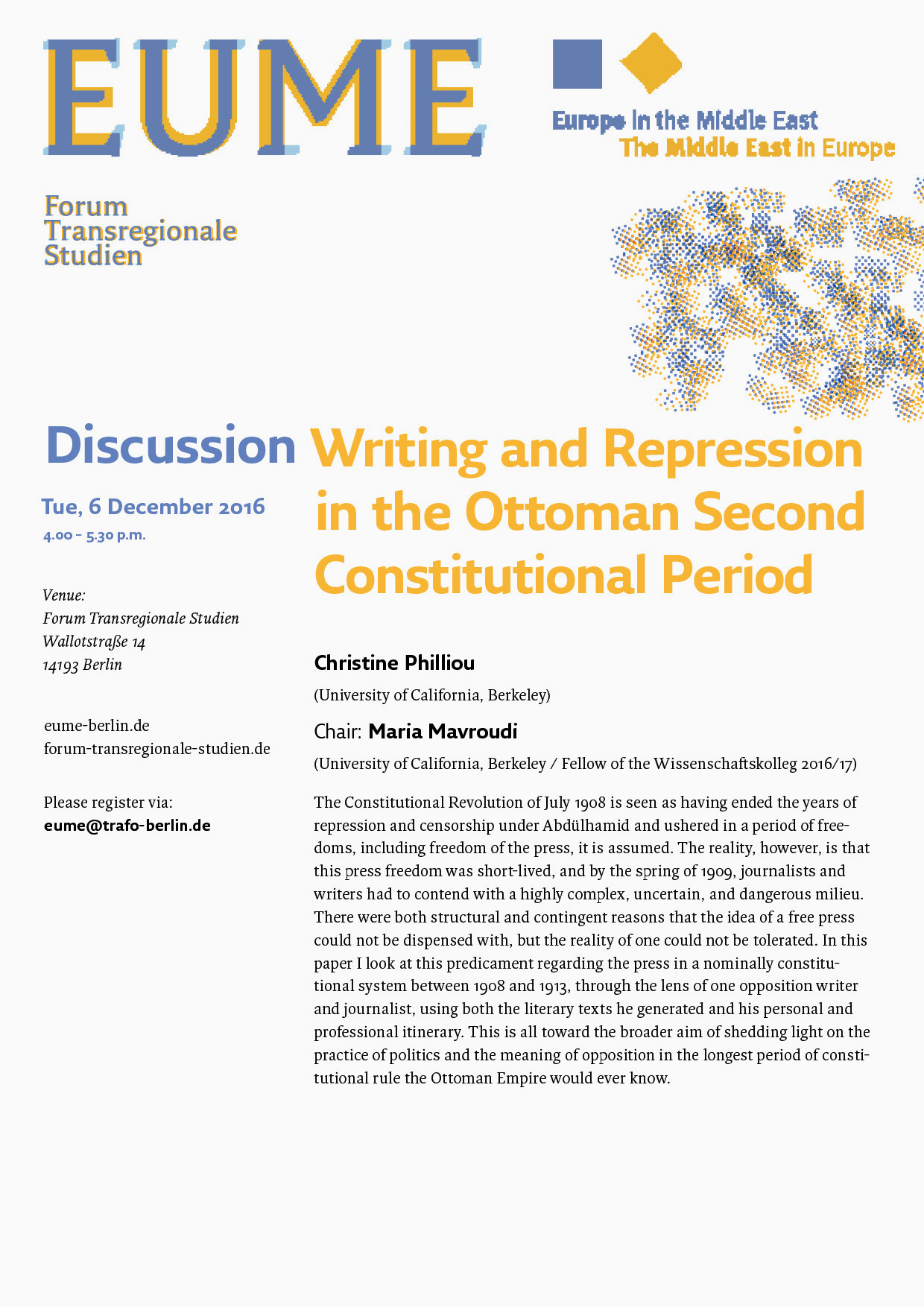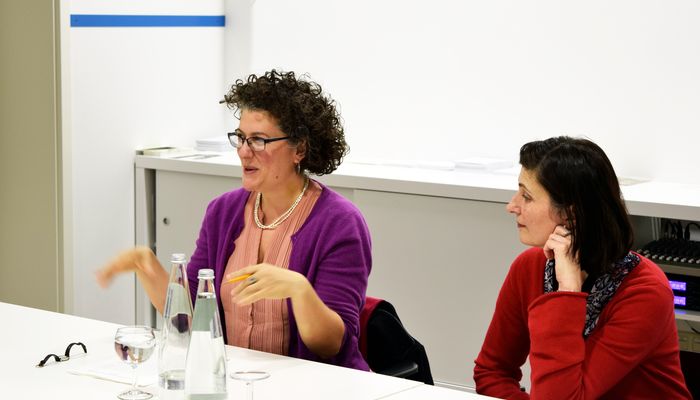Lecture: Christine Philliou
(University of California, Berkeley)
Chair: Maria Mavroudi
(University of California, Berkeley / Fellow of the Wissenschaftskolleg zu Berlin 2016/17)
Abstract:
The Constitutional Revolution of July 1908 is seen as having ended the years of repression and censorship under Abdülhamid and ushered in a period of freedoms, including freedom of the press, it is assumed. The reality, however, is that this press freedom was short-lived, and by the spring of 1909, journalists and writers had to contend with a highly complex, uncertain, and dangerous milieu. There were both structural and contingent reasons that the idea of a free press could not be dispensed with, but the reality of one could not be tolerated. In this paper I look at this predicament regarding the press in a nominally constitutional system between 1908 and 1913, through the lens of one opposition writer and journalist, using both the literary texts he generated and his personal and professional itinerary. This is all toward the broader aim of shedding light on the practice of politics and the meaning of opposition in the longest period of constitutional rule the Ottoman Empire would ever know.
Writing and Repression in the Ottoman Second Constitutional Period
Christine Philliou (University of California, Berkeley), Chair: Maria Mavroudi (University of California, Berkeley / Fellow of the Wissenschaftskolleg zu Berlin 2016/17)
Forum Transregionale Studien, Wallotstr. 14, 14193 Berlin

Christine Philliou, associate professor, specializes in the political and social history of the Ottoman Empire and modern Turkey and Greece as parts of the post-Ottoman world. Her book, Biography of an Empire: Governing Ottomans in an Age of Revolution (University of California Press, 2011) examines the changes in Ottoman governance leading up to the Tanzimat reforms of the mid-nineteenth century. It does so using the vantage point of Phanariots, an Orthodox Christian elite that was intimately involved in the day-to-day work of governance even though structurally excluded from the Ottoman state. Her current work turns to the political, personal and intellectual/artistic itinerary of the Turkish writer Refik Halit Karay (1888-1965). Her interests and other publications have had to do with comparative empires across Eurasia, various levels of transitions from an "Ottoman" to a "post-Ottoman" world in the nineteenth and twentieth centuries, and political and cultural interfaces in the eastern Mediterranean, Middle East, and Balkans in the early modern and modern eras.

